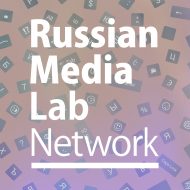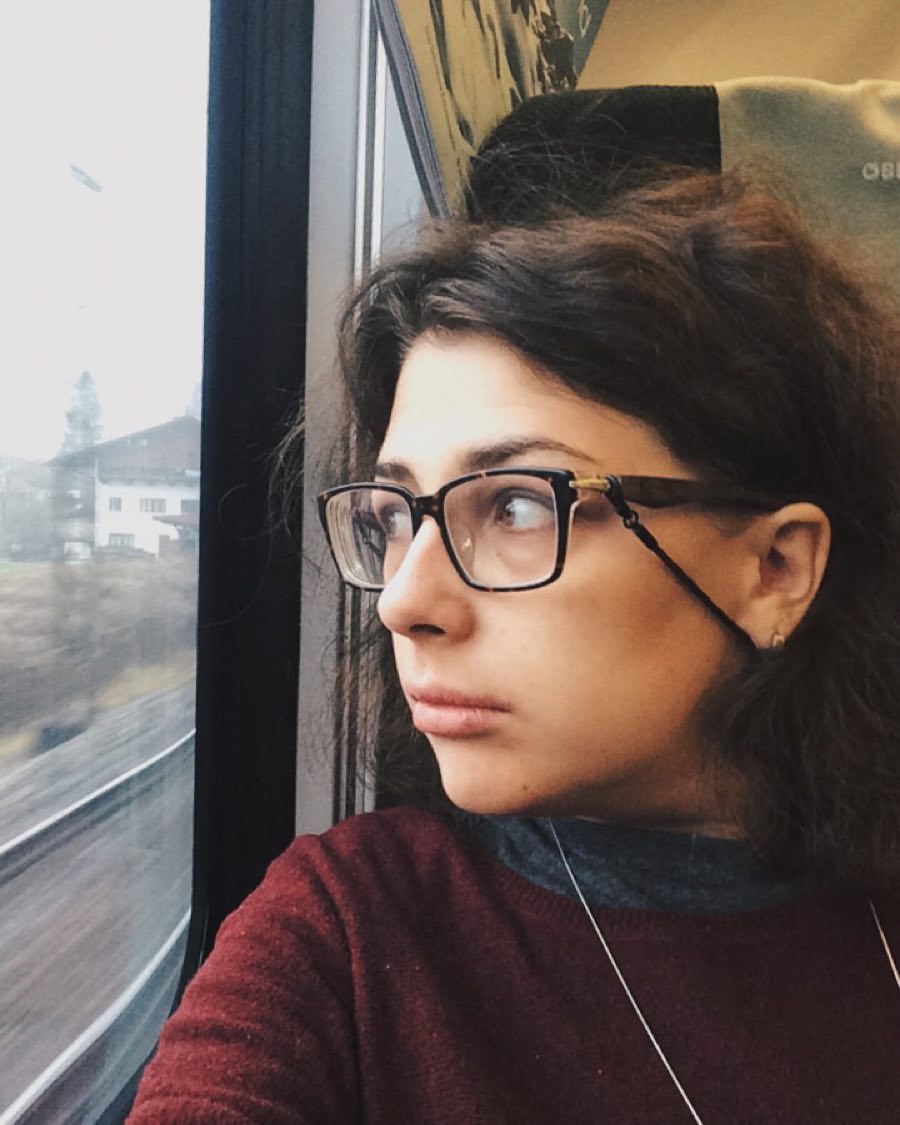In March 2019 RML hosted visiting researcher Polina Kolozaridi, lecturer at Higher School of Economics and founder of club for internet and society enthusiasts. Russian Media Lab asked Kolozaridi several questions about her research and visit Aleksanteri Institute.
What is your current research about?
My central research now is about the diversity of internet in Russia and internet policies. Together with the club for internet and society enthusiasts we did several studies on internet history and bloggers in Russian regions, but in here Helsinki I focused mostly on the topic of Internet policies.
During my lecture at Aleksanteri Institute I talked about the role of government in regulating internet and the challenge of diversity and fragmentation. In 1996 John Perry Barlow had written the Declaration of the independence of the Cyberspace. This is an important document of the era of global internet. However, 23 years after it cannot be treated as a program document, as far as internet became ubiquitous: it is not a separate space anymore. Internet is flexible, therefore each social group or subculture uses and understands it in their own specific way. For instance, it was demonstrated in “Why We Post” project. Often we continue to treat the internet as something universal and global, as the epistemological approaches are rather rigid. Together with my colleagues we try to rise this problem and find some empirical and theoretical solutions for alternative understanding of internet as locally determined and diversified entity.
One of the empirical solutions is to investigate the variety of what internet might be in different places. In order to do it, we organized research expeditions to the Russian cities: Voronezh, Kazan, Tomsk, Arzamas, Pereslavl-Zalessky, Tyumen. Another solution is to analyse official government documents to understand how they conceptualize internet, its present and future. We still have plenty of field data to analyze, but it is already clear that internet should be understood as an interconnection of infrastructure, use and policies (as William Dutton stated) and also as media and content space. Moreover, the state or business are not homogeneous actors, but consist of very differently-minded groups.
How do you assess the freedom of speech in Russian-language segment of Internet?
I have quite unpopular position here. From my point of view, there are two reductions of this topic: metaphor of cyberspace and State as an extremely important actor.
Firstly, internet is not just a media. We prove it every day: when we use internet to order food or check bus schedule. It has always been more than media if we look elsewhere beyond the Western-oriented megapolis. I was born in Tomsk in Siberia. Tomsk has an incredibly interesting history of local networks, media, blogs, etc. In our expeditions we have also seen a variety of histories and practices based on online technologies. People are creative and internet is flexible. Therefore it is very strange when the latter is treated solely as a media.
The second reduction is beneficial for empowerment of the state, rather than online projects and initiatives. When in academic discussions we treat the state as the most influential stakeholder of internet in Russia, we produce the discourse and knowledge that prove its importance. On the other hand, if we focus, for example, on the infrastructure, we might see a plenty of actors who also regulate internet but have their own interests and visions. I suppose that freedom of speech is when you do not think about Putin everyday. I mean that there are many projects that raise very important societal questions on the local level and they are out of political context. For example, Tyumen feminist groups made a map of sexist advertising and try to explain people why naked woman on the ad of petrol is sexist and useless in terms of marketing efficiency.
Also I insist that the internet is not only a space or media, but also an infrastructure. It can be used to create something that is irrelevant to the conflict of oppressive state and freedom of speech. In case of Russia, the government laws are really sometimes restrictive, and they might be harmful for many stakeholders. At the same time, it is incorrect to consider internet as a channel or an instrument for free speech only.
What else was important in your visit?
I gave a talk at the Brown bag lunch where we discussed research ethics. As I’ve mentioned above, we have different metaphors of internet and they shape our understanding of internet. Annette Markham has very helpful research on this topic. She suggests three basic metaphors: space, tool and a way of being. However, when it comes to research process, it is quite difficult to understand what internet is when we study, e.g. a social networking site. Is it an archive or a conversation log? Can we just use this data or should we ask for permission. Whom and how should we ask? Who benefits from our research? Can we can explain its importance to different people on the parents forum, for example? There is no correct answer for all these questions. Nevertheless, it is important to take them into consideration and discuss as a part of methodological work.
How was the networking during you visit?
I talked a lot to Olga Dovbysh, with whom we collaborated in local media research. Now we are planning to write a co-authored book on our research of Internet in Russian cities. I also met Andrey Indukaev, who studies digitalization. We had an interesting and inspiring discussion whether there is a technocracy in Russia.
What are your impressions of Helsinki?
I have never been to Helsinki in March and had many stereotypes about the weather. They all turned out to be true: I have seen the sun only twice (each time for about 15 minutes) and suffered from a combination of snow, wind and rain (unbearable, because the umbrella does not help at all). The good thing about it is that I came for a research stay and was eager to write, read and talk to people inside my favorite modernistic buildings in Helsinki. And all these plans came true too.
Kolozaridi’s visit was supported by the Faculty of Arts, University of Helsinki.


When they say “freedom of speech,” there are two kinds of speech. Constructive and destructive. Constructive speech is when people offer realistic (!) ideas for the various aspects of life – economy, politics, social issues, etc. It’s when people mean well for our country. Destructive speech is when all people yell is “Doloi!” (Down with–!) and rouse antagonism and conflict in society, immersing it in chaos. Just that, without any realistic vision of our future, any realistic ideas. All they want is to destroy the country. More than once we’ve seen freedom given to destructive speech in our history. The day before yesterday they yelled, “Down with the monarchy! Long live freedom! All power to the Soviets!” Yesterday they yelled, “Down with the Soviets! Long live freedom! ” Today they yell, “Down with Putin! Long live freedom!” The end of that kind of speech has always been the same for us–bloodshed, suffering of millions. May God help Putin quench that speech.